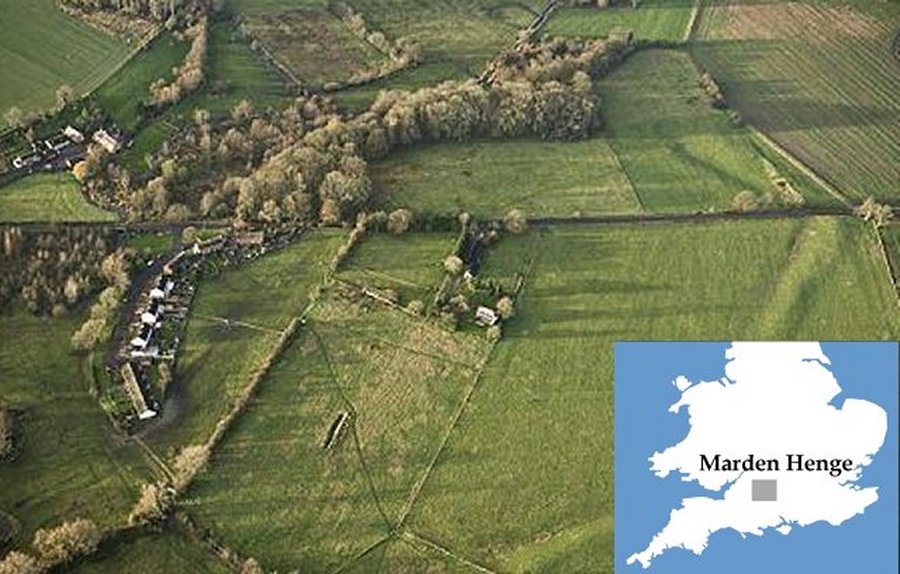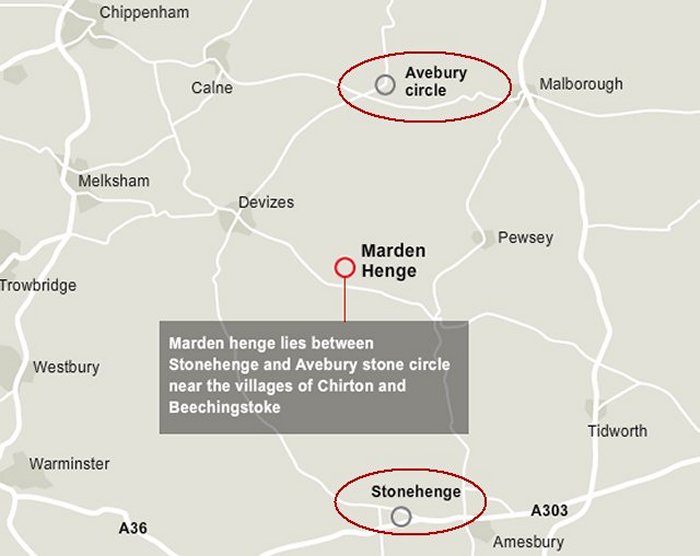MessageToEagle.com – Archaeologists from the University of Reading conduct a fascinating three-year excavation in the Vale of Pewsey, Wiltshire, between the iconic prehistoric monuments of Stonehenge and Avebury, in the southern end of England.
The researchers will explore Marden Henge – Stonehenge’s big brother and Britain’s largest but least known and understood prehistoric monument, built around 2400 BC.

The old Marden Henge, in Wiltshire, is stretching for 10.5 hectares, the equivalent of 10 football pitches.
Excavation within the Henge will focus on the surface of a Neolithic building revealed during earlier excavations. The people who used this building will have seen Stonehenge in full swing, perhaps even helped to haul the huge stones upright.
“This excavation is the beginning of a new chapter in the story of Stonehenge and its surrounds. The Vale of Pewsey is a relatively untouched archaeological treasure-chest under the shadow of one of the wonders of the world.

“Why Stonehenge was built remains a mystery. How the giant stones were transported almost defy belief. It must have been an astonishing, perhaps frightening, sight. Using the latest survey, excavation and scientific techniques, the project will reveal priceless insight into the lives of those who witnessed its construction.
“Marden Henge is located on a line which connects Stonehenge and Avebury. This poses some fascinating questions. Were the three monuments competing against each other? Or were they used by the same communities but for different occasions and ceremonies? We hope to find out,” , said Dr Jim Leary, from the University of Reading’s Department of Archaeology and Director of the Archaeology Field School.
The Vale of Pewsey is not only rich in Neolithic archaeology. It is home to a variety of other fascinating historical monuments from various periods in history, including Roman settlements, a deserted medieval village and post-medieval water meadows.
A suite of other investigations along the River Avon will explore the vital role of the Vale’s environment throughout history.
MessageToEagle.com






